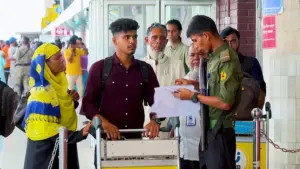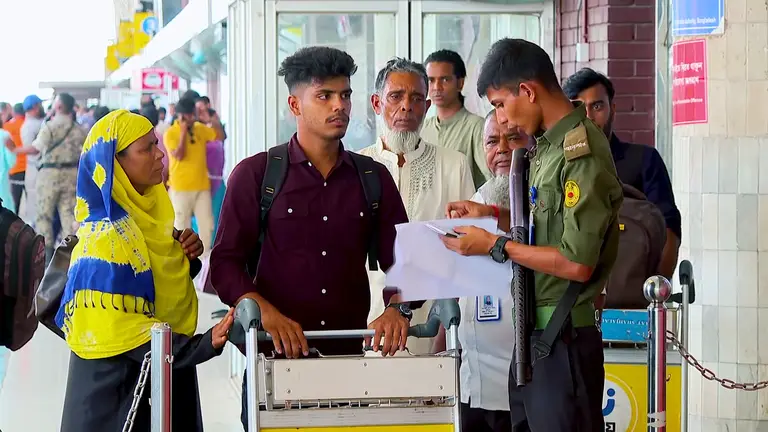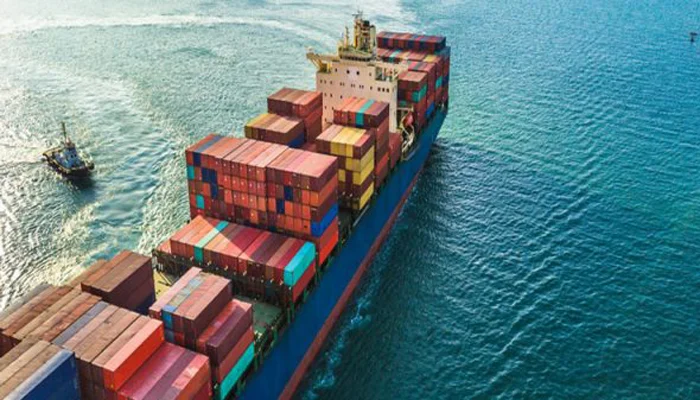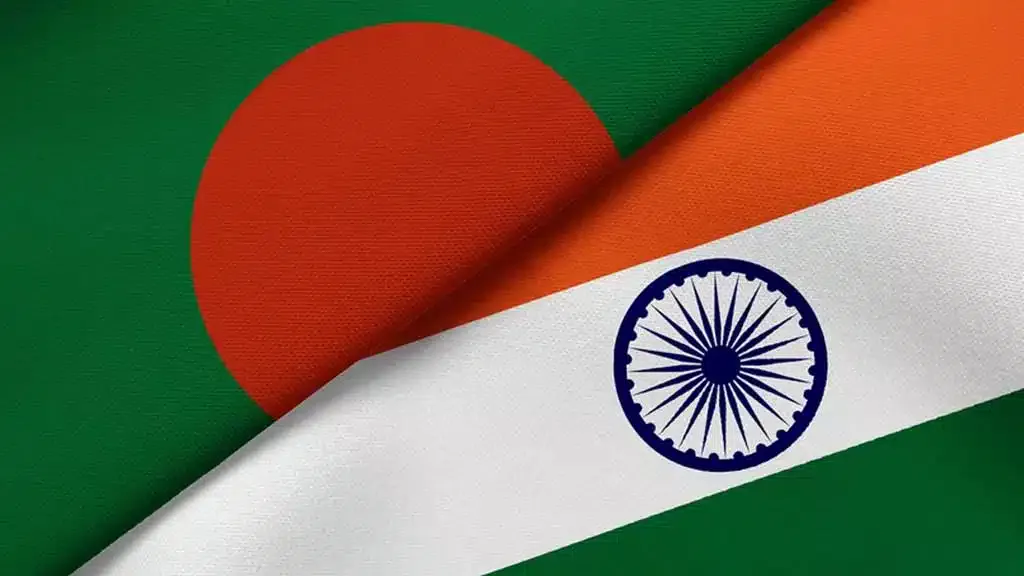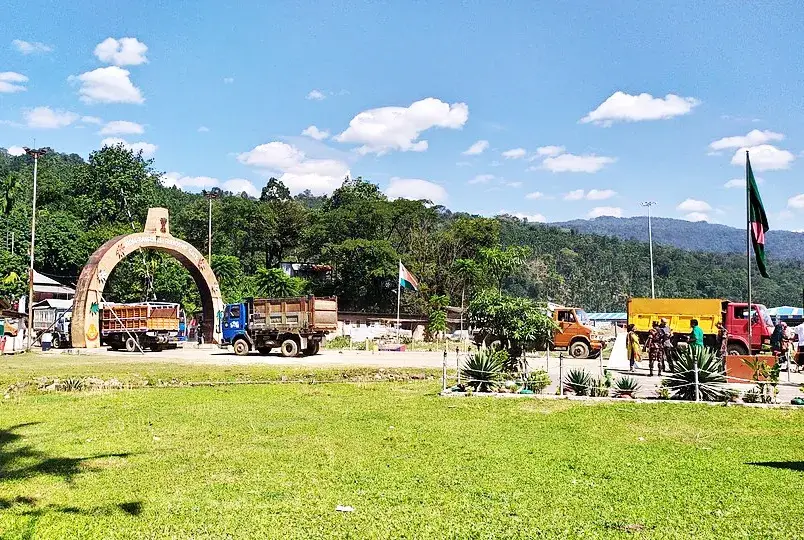
India has prohibited the import of approximately seven types of goods, including ready-made garments, processed food products, and plastics, from Bangladesh through land ports. Following the announcement, many goods were stranded at the border on Sunday (May 18th), causing problems for Bangladeshi exporters. Many are worried about whether exporting will be possible at all with a fivefold increase in costs.
Amid escalating trade tensions between India and Bangladesh, the Indian government has imposed new port restrictions on the import of several goods from Bangladesh. This move is widely seen as a retaliatory measure in response to Dhaka’s decision to close its land ports for the import of Indian yarn.
The Directorate General of Foreign Trade of India issued a notification on Saturday (May 17th) detailing these restrictions. The notification specifically limits the import of ready-made garments, processed food items, carbonated drinks, plastic goods, and wooden furniture.
Specifically, all types of ready-made garments (RMG) from Bangladesh will now only be allowed through the seaports of Nhava Sheva and Kolkata; land ports will no longer be permitted for these imports.
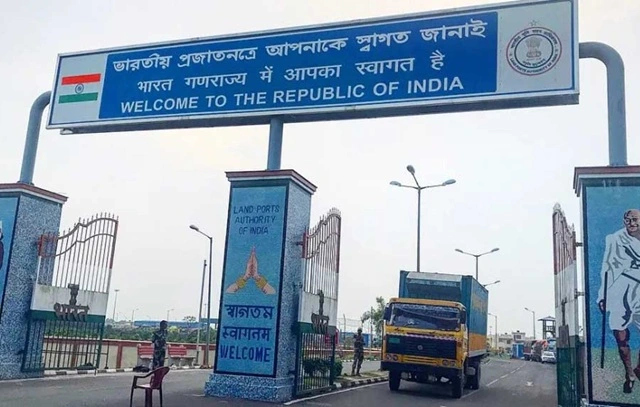
Other goods such as plastics, wooden furniture, processed food, fruit-flavored and carbonated drinks, cotton, and cotton yarn waste are also barred from entering India through land ports in the northeastern states of Assam, Meghalaya, Tripura, Mizoram, and border points in West Bengal, including Phulbari and Changrabandha. However, goods like fish, LPG, edible oil, and crushed stone remain exempt from these restrictions.
These port restrictions come at a time when Bangladesh closed its land ports for the import of Indian yarn starting April 13th, 2025. Yarn, especially dyed and special varieties, constitutes nearly 30 percent of India’s textile exports to Bangladesh. This closure has disrupted the supply chain for Indian textile mills, forcing exporters to explore alternative routes like container shipping and inland waterways.
Bangladeshi exporters state that the closure of land ports will severely hamper the export of goods to India. This is because using sea routes as an alternative will increase both costs and time. Goods will have to be unloaded at the ports of Kolkata and Mumbai in India via sea and then transported by land to their desired destinations. While some exports to the mainland might still be possible, sending goods to India’s northeastern states, known as the Seven Sisters and a significant market, will become nearly impossible.
Several exporters mentioned that they have always relied on India’s land ports for exporting goods and have never used seaports. This is because transportation costs are almost five times higher via sea. To send goods to those northeastern states, they would first have to be shipped from Chittagong port to Kolkata by sea. Subsequently, the consignments would have to travel around the entire border of Bangladesh to reach Assam, Meghalaya, Karimganj, and Agartala.
Debashish Singh, Head of Business at Danish Food, noted that they use six land ports for exporting to India, and all of them have been closed. India is now only offering the option to import Bangladeshi goods through the Kolkata and Mumbai seaports. These two ports will be of no use to exporters, as no exports are conducted through them.
Until now, exporters used six ports such as Akhaura in Brahmanbaria, Chatlapur in Moulvibazar, Sheola and Tamabil in Sylhet to send goods to India’s Seven Sisters. This incurred a cost of 18,000 to 25,000 taka for a 20-foot cargo. With the same fare, they can now only transport goods up to Chittagong port. Following that, they will have to bear an additional cost of approximately one lakh taka for extra shipping charges and for transporting the goods again from Kolkata to Assam, Meghalaya, Karimganj, or Agartala.
Samim Ahmed, President of the Bangladesh Plastic Goods Manufacturers and Exporters Association (BPGMEA), said, “Transporting goods by sea at such a high cost will in no way be competitive. We have never sent goods by sea before. If we have to do that now, our exports will cease. More than 50 companies in the country used to export only plastic goods, and they will lose a significant market.”
Akij Food and Beverage Limited used to export a substantial quantity of soft drinks to India. Maidul Islam, Head of Marketing at the company, stated, “Following India’s decision, we have suspended the production of the orders we had from India today. We used to export four to five lakh cartons of goods to India annually. This decision has left us in uncertainty.”
Maidul Islam added, “While Bangladeshi businesses will suffer from this decision, Indian consumers will also be deprived of good quality products at low prices. Therefore, we are hopeful that a positive resolution will be reached soon through discussions between the governments of both countries.”
Debashish Singh of Danish Food commented, “Even if there is an opportunity to export differently now (by sea), Bangladeshi companies will not be able to cover the costs. This is because we could reach Assam, Guwahati, Meghalaya, Tripura, and Mizoram by land route as soon as we crossed the border. If we don’t take that route, we won’t be able to survive the costs by traveling a long way by waterway and changing transport multiple times.”
India’s previous diplomatic efforts to resolve the dispute with Dhaka have seen little progress, leading to this retaliatory trade curtailment.
Further straining the relationship, India has ended a nearly five-year-old arrangement that allowed Bangladesh to use Indian airports and ports for the trans-shipment of exports to third countries, a move seen as a blow to Bangladesh’s logistics capabilities.
Bangladeshi exporters further explained that under the new system, to send goods by sea, they will have to be shipped from Chittagong port or Mongla port to Haldia port in Kolkata. From there, they will then need to be transported to the Seven Sisters via separate transport. This process will take approximately a week, which previously could be done in a single day via land ports.






